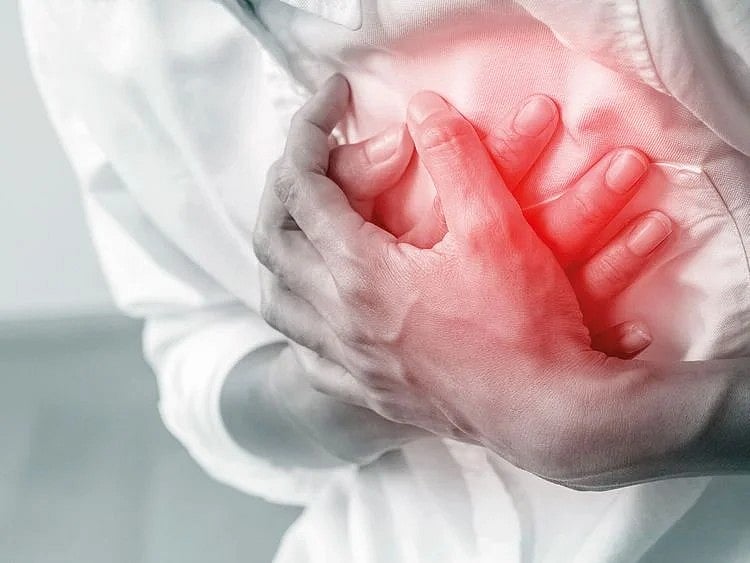Dubai teen dies: Hidden heart warning signs every parent must know – explainer
Doctors outline underlying conditions linked to sudden cardiac arrest

The sudden death of 18-year-old Indian student Vaishnav Krishnakumar in Dubai, who collapsed during Diwali celebrations, has sparked urgent questions among parents about hidden heart conditions in teenagers. Doctors said sudden cardiac arrest among teens is rare but can strike without warning if underlying issues go undetected.
According to Vaishnav’s family, he was healthy and active with no known medical problems. Forensic findings suggest he felt exhausted after dancing with friends, sat down to rest and suddenly collapsed. He was rushed to hospital but declared dead on arrival.
Doctors told Gulf News that while such cases are uncommon – affecting 1-2 per 100,000 children each year – they are often linked to undiagnosed heart abnormalities.
“Sudden cardiac events in young people are rare, but when they happen, they leave families searching for answers,” said Dr Jamuna Devi, Consultant Cardiologist, LLH Musaffah. “Many of these tragedies are linked to silent heart conditions that go unnoticed until it is too late. Knowing what to look for and how to act in an emergency can make all the difference.”
Common hidden issues
Doctors outline these underlying conditions linked to sudden cardiac arrest:
1. Arrhythmia (irregular heartbeat)
Sometimes the heart’s rhythm goes off-track, beating too fast, too slow, or unevenly.
Warning signs: Fainting, dizziness, heart racing or feeling light-headed during exercise.
“If a child faints or often feels their heart racing, do not ignore it. Get a heart check-up and ECG done,” Dr Devi noted.
2. Long or short QT syndrome
This is an electrical fault in the heart that can trigger dangerous rhythms, especially during physical or emotional stress.
Warning signs: Fainting during sports, sudden collapse after a loud noise or shock, or unexplained seizures.
Emergency action: Call emergency services and start CPR if no pulse.
3. Cardiomyopathy
In some young people, the heart muscle becomes unusually thick or weak, making it harder to pump blood properly.
Warning signs: Chest pain during activity, breathlessness, or unusual tiredness.
“Teens who play competitive sports should get regular heart screenings, especially if there is a family history of heart problems,” Dr Devi said.
4. Myocarditis
After viral infections such as flu or COVID-19, the heart can sometimes get inflamed.
Warning signs: Chest discomfort, fatigue, or irregular heartbeat after a recent illness.
“If energy levels drop sharply after recovery from fever or infection, get it checked instead of waiting for it to improve on its own.”
5. Hidden structural or genetic issues
Some heart defects are present from birth and may not show symptoms for years. Simple heart scans and screenings can detect these early.
Warning signs: Trouble keeping up with friends during play, bluish lips during exertion, or frequent breathlessness.
Importance of regular health screenings
“While rare, these incidents remind us of the importance of regular health screenings, even for seemingly healthy youth. Early detection of underlying heart issues through ECG, echocardiography, and cardiac evaluation can be life-saving,” said Dr Usair Ansari, Specialist Cardiologist at Aster Clinic, Discovery Gardens.
Why quick action saves lives
A close relative of Vaishnav said he could have been saved if CPR was started immediately.
“In most sudden cardiac arrests, every second counts. The first three to five minutes can decide the outcome,” Dr Devi pointed out.
What to do if someone collapses?
1. Call for help immediately.
2. Check for breathing and responsiveness.
3. Start CPR by pushing hard and fast at the centre of the chest, about 100 to 120 compressions per minute.
4. Use an Automated External Defibrillator (AED) if available.
What parents should do
Do annual heart checks for teenagers.
Never ignore fainting, chest pain or breathlessness during exercise.
Know basic CPR – schools and communities should be CPR-ready.
Athletes should get cardiac screening before competitive sports.
“Awareness and quick response can turn a tragedy into a life saved,” Dr Devi added.
Sign up for the Daily Briefing
Get the latest news and updates straight to your inbox
Network Links
GN StoreDownload our app
© Al Nisr Publishing LLC 2026. All rights reserved.